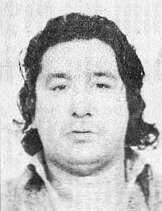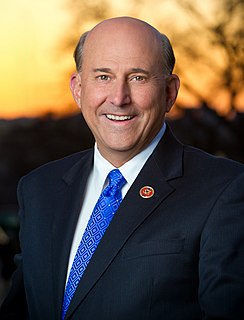A Quote by Sonia Sotomayor
Even though Article IV of the Constitution says that treaties are the 'supreme law of the land', in most instances they're not even law.
Related Quotes
The commitment to international agreements is embodied, it's found in the U.S. Constitution. Article Six of the U.S. Constitution provides that treaties of the United States are part of the supreme law of the land along with the constitution itself and laws passed by Congress. Well, the US government certainly has not been acting in recent years as if treaties were part of the supreme law of the land.
Revealingly, the central function of the Constitution as law--the supreme law--was to impose limitations not on the behavior of ordinary citizens but on the federal government. The government, and those who ran it, were not placed outside the law, but expressly targeted by it. Indeed, the Bill of Rights is little more than a description of the lines that the most powerful political officials are barred from crossing, even if they have the power to do so and even when the majority of citizens might wish them to do so.
The sovereignty of the States is the language of the Confederacy and not the language of the Constitution. The latter contains the emphatic words. This Constitution and the laws of the United States which shall be made in pursuance thereof and all treaties made or which shall be made under the authority of the United States, shall be the supreme law of the land and the judges in every State shall be bound thereby, anything in the constitution or laws of any State to the contrary notwithstanding
I often wonder whether we do not rest our hopes too much upon constitutions, upon law and upon courts. These are false hopes, believe me, these are false hopes. Liberty lies in the hearts of men and women; when it dies there, no constitution, no law, no court can save it; no constitution, no law, no court can even do much to help it. While it lies there it needs no constitution, no law, no courts to save it.
There are tribes, I should say nations, which prior to the AIM movement had only ten or fifteen employees, and now have upwards of 2000. There are educational programs that didn't exist before, there are housing programs, health programs, senior citizen programs, cultural programs and the list goes on. It's all because some people stood up and said sovereignty is our right by treaty and the constitution says treaty law is the supreme law of the land.
The Supreme Court is about the Constitution. It is about constitutionality. It is about the law. At its bear simplest, it's about the law. It is not about the Democrat Party agenda. Because that's what it's become. The whole judiciary has become that because that's the kind of people they have put on various courts as judges, and every liberal justice on the Supreme Court is a social justice warrior first and a judge of the law second. And if they get one more, then they will have effectively corrupted the Supreme Court.
The mission of the law is not to oppress persons and plunder them of their property, even though the law may be acting in a philanthropic spirit. Its purpose is to protect persons and property.... If you exceed this proper limit -- if you attempt to make the law religious, fraternal, equalizing, philanthropic, industrial, or artistic -- you will then be lost in uncharted territory, in vagueness and uncertainty, in a forced utopia or, even worse, in a multitude of utopias, each striving to seize the law and impose it on you.































